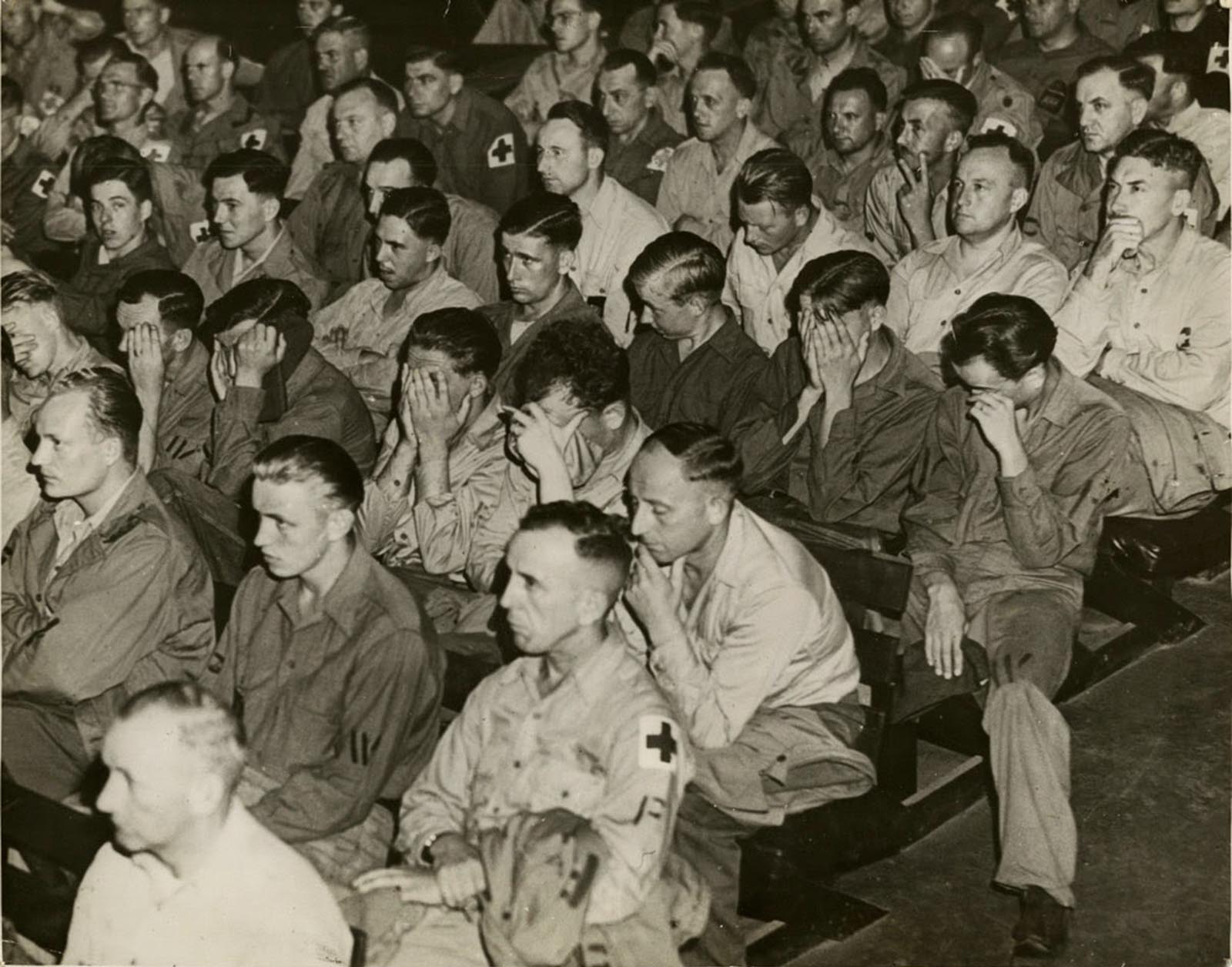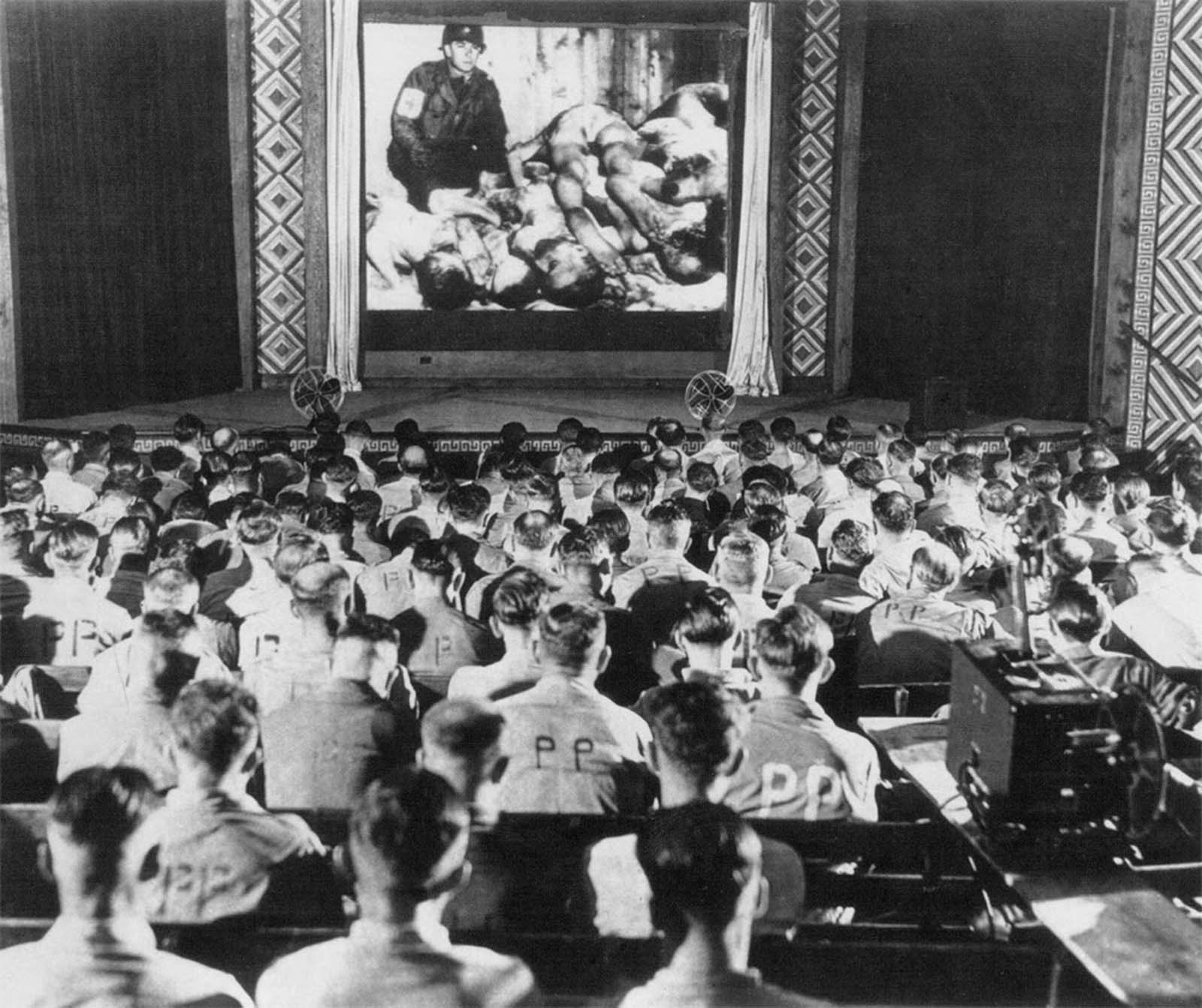It must be really hard to go through what they did and look back knowing that everything that happened to them, all of their friends who were killed or maimed was in the name of something horrific, something totally repugnant to their own values. Original caption reads: Deutsche Kriegsgefangene in den Vereinigten Staaten sehen einen Bildbericht aus den deutschen Konzentrationslagern. English: German prisoners of war held in an American camp watch a film about German concentration camps. This forced process was part of the Allied policy of postwar denazification, meant to purge Germany of the remnants of Nazi rule and rebuild its civil society, infrastructure, and economy. The program included compulsory visits to nearby concentration camps, posters displaying dead bodies of prisoners hung in public places, and forcing German prisoners of war to view films documenting the Nazis’ treatment of “inferior” people. The footage came from a newsreel shown in the US that was seen by millions and millions of people at the time. Seeing is believing. Often the only thing capable of denting humanity’s monumental ability to bunker down in a state of denial is indisputable, visual evidence. When cruel things take place on a massive and institutionalized scale behind closed doors and out of sight in societies, only jarring confrontation can shatter the delusions. If the ear won’t listen, tell it to the eye. German soldiers weren’t necessarily Nazis. The Holocaust is just one side of the Second World War. The other side was the fight for territory and power. Sounds unthinkable today (especially when you are German), but in that respect, the Second World War was just the last war in a very long of wars for supremacy in Europe, that went back and forth for centuries. Strong nationalistic feelings and “war as an extension of diplomacy” were quite normal back then. There was no conflict between not following (maybe even opposing) the Nazis and fighting for the “good of your Fatherland”. Some soldiers were Nazis, some just wanted revenge for Versailles, others wanted to sit at the same table as France and Britain. And many followed because they had no other choice.
What did the German people know about the Nazi concentration camps during WWII?
Recent German historiography showed that a lot of Germans were definitely aware of the mass killings of Jews (Slavs, mentally disabled, etc.), but not what specifically happened in the concentration camps. You had lots of soldiers who saw these killings and reports of them did make it back to the home front. Jews were often rounded up and their mass deportations were not a secret and often watched by bystanders. Some of the mass killings were even public. It was common for Germans to listen to foreign radio stations, which mentioned the mass killings of Jews as well. Some people did speak out against that, most famously the resistance movement White Rose, who distributed pamphlets that attacked the killings of hundreds of thousands of Jews. They were identified, captured, and sentenced to death. Denazification was an Allied initiative to rid German and Austrian society, culture, press, economy, judiciary, and politics of any remnants of the National Socialist ideology. It was carried out specifically by removing those involved from positions of influence and by disbanding or rendering impotent the organizations associated with it. The program of denazification was launched after the end of the Second World War and was solidified by the Potsdam Agreement. (Photo credit: US Army Archive). Notify me of new posts by email.
Δ Subscribe

